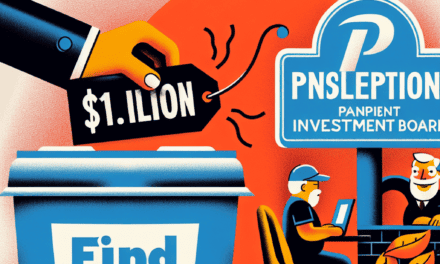“Dan Ives: Unleashing Tesla’s Trillion-Dollar AI Potential Under Trump”
Introduction
Dan Ives is a prominent financial analyst and Managing Director at Wedbush Securities, known for his expertise in technology and equity research. He has gained recognition for his insightful analysis and commentary on major tech companies, including Tesla. In his analysis titled “Trump Administration Could Unleash Trillion-Dollar AI Potential for Tesla,” Ives explores the potential impact of policy decisions under the Trump administration on the growth and development of artificial intelligence technologies within Tesla. He highlights how favorable regulatory environments and government support could significantly enhance Tesla’s capabilities in AI, potentially unlocking substantial economic value and positioning the company at the forefront of innovation in the automotive and technology sectors.
Impact Of Trump Administration Policies On AI Development
The Trump administration’s policies have often sparked intense debate across various sectors, and the realm of artificial intelligence (AI) is no exception. Dan Ives, a prominent analyst, has suggested that these policies could potentially unlock a trillion-dollar opportunity for companies like Tesla, which are at the forefront of AI development. To understand the potential impact, it is essential to examine the administration’s approach to AI and how it aligns with the strategic goals of innovative companies.
Under the Trump administration, there was a marked emphasis on fostering innovation and reducing regulatory barriers, which are critical components for the advancement of AI technologies. This approach was encapsulated in the American AI Initiative, which aimed to prioritize AI research and development, increase access to federal data, and promote international collaboration. By focusing on these areas, the administration sought to position the United States as a global leader in AI, thereby creating a conducive environment for companies like Tesla to thrive.
Tesla, known for its cutting-edge technology and ambitious vision, stands to benefit significantly from such policies. The company’s commitment to AI is evident in its development of autonomous vehicles, which rely heavily on sophisticated AI algorithms to navigate complex driving environments. The reduction of regulatory hurdles could accelerate the deployment of these technologies, allowing Tesla to capitalize on its investments more rapidly. Moreover, increased access to federal data could enhance the training of AI models, leading to more robust and reliable autonomous systems.
Furthermore, the Trump administration’s focus on international collaboration could open new markets for Tesla’s AI-driven products. By fostering partnerships with other countries, the administration aimed to create a global ecosystem that supports AI innovation. This could provide Tesla with opportunities to expand its reach and tap into new customer bases, thereby driving growth and increasing its market share. Additionally, such collaboration could lead to the development of international standards for AI, which would benefit companies operating across borders by providing a consistent framework for innovation.
However, it is important to consider the potential challenges that may arise from these policies. While reducing regulatory barriers can spur innovation, it also raises concerns about safety and ethical considerations. For Tesla, which is developing technologies that directly impact public safety, such as autonomous vehicles, it is crucial to balance innovation with responsibility. Ensuring that AI systems are safe, reliable, and ethically sound will be essential to gaining public trust and achieving long-term success.
In conclusion, the Trump administration’s policies have the potential to unleash a trillion-dollar opportunity for AI development, particularly for companies like Tesla that are at the cutting edge of innovation. By prioritizing research and development, reducing regulatory barriers, and promoting international collaboration, these policies create an environment conducive to growth and advancement. However, it is imperative for companies to navigate the associated challenges carefully, ensuring that their AI technologies are not only innovative but also safe and ethical. As the landscape of AI continues to evolve, the impact of these policies will likely be a subject of ongoing analysis and discussion, shaping the future of AI development in the United States and beyond.
Dan Ives’ Perspective On Tesla’s AI Advancements
Dan Ives, a prominent analyst at Wedbush Securities, has recently articulated a compelling perspective on the potential impact of the Trump administration’s policies on Tesla’s advancements in artificial intelligence (AI). According to Ives, the administration’s regulatory and economic strategies could serve as a catalyst for unleashing a trillion-dollar potential within Tesla’s AI initiatives. This assertion is grounded in the broader context of the administration’s approach to technology and innovation, which has often emphasized deregulation and fostering a business-friendly environment. As a result, companies like Tesla, which are at the forefront of technological innovation, stand to benefit significantly.
Tesla’s AI advancements are primarily centered around its autonomous driving technology, which has been a focal point of the company’s strategic vision. The development of self-driving cars is not only a technological challenge but also a regulatory one. The Trump administration’s inclination towards reducing regulatory hurdles could accelerate the deployment and adoption of autonomous vehicles. By creating a more conducive regulatory environment, the administration could enable Tesla to expedite its AI-driven projects, thereby unlocking substantial economic value.
Moreover, the administration’s tax policies, which have included significant corporate tax cuts, could provide Tesla with additional financial resources to invest in AI research and development. This financial boost could enhance Tesla’s ability to innovate and maintain its competitive edge in the rapidly evolving automotive industry. Ives suggests that with increased capital, Tesla could further refine its AI algorithms, improve the safety and efficiency of its autonomous systems, and expand its market share in the burgeoning electric vehicle sector.
In addition to regulatory and financial considerations, the geopolitical landscape also plays a crucial role in shaping the future of AI in the automotive industry. The Trump administration’s focus on strengthening domestic manufacturing and reducing reliance on foreign technology could incentivize Tesla to bolster its AI capabilities within the United States. This strategic shift could not only enhance national security but also position Tesla as a leader in the global AI race. By fostering a robust domestic AI ecosystem, the administration could help Tesla tap into new markets and drive economic growth.
Furthermore, the potential for collaboration between the government and private sector in advancing AI technology cannot be overlooked. Public-private partnerships could facilitate the sharing of resources, knowledge, and expertise, thereby accelerating the pace of innovation. Ives posits that such collaborations could be instrumental in overcoming technical and logistical challenges associated with the deployment of autonomous vehicles. By working together, the government and companies like Tesla could pave the way for a future where AI-driven transportation is not only feasible but also widely accessible.
In conclusion, Dan Ives’ perspective on Tesla’s AI advancements under the Trump administration highlights the intricate interplay between policy, technology, and economics. The administration’s regulatory, financial, and geopolitical strategies could collectively unleash a trillion-dollar potential for Tesla’s AI initiatives. As the company continues to push the boundaries of innovation, the support of a conducive policy environment could prove to be a pivotal factor in realizing the full potential of AI in the automotive industry. Through strategic investments and collaborations, Tesla could lead the charge in transforming transportation and shaping the future of mobility.
Trillion-Dollar AI Potential In The Automotive Industry
The automotive industry stands on the brink of a transformative era, driven by the rapid advancements in artificial intelligence (AI). Among the companies poised to capitalize on this technological revolution is Tesla, a leader in electric vehicles and autonomous driving technology. According to Dan Ives, a prominent analyst, the Trump administration’s policies could potentially unlock a trillion-dollar AI opportunity for Tesla, reshaping the landscape of the automotive sector.
To understand the magnitude of this potential, it is essential to consider the role of AI in the automotive industry. AI technologies, such as machine learning and neural networks, are integral to the development of autonomous vehicles. These technologies enable cars to process vast amounts of data in real-time, allowing them to navigate complex environments, recognize obstacles, and make split-second decisions. As a result, AI is not only enhancing the safety and efficiency of vehicles but also paving the way for a future where fully autonomous cars become a reality.
Tesla, under the leadership of Elon Musk, has been at the forefront of integrating AI into its vehicles. The company’s Autopilot system, which utilizes AI to assist with driving tasks, is a testament to Tesla’s commitment to innovation. However, the potential for AI in Tesla’s operations extends beyond just autonomous driving. AI can optimize manufacturing processes, improve energy efficiency, and enhance customer experiences through personalized services. Thus, the integration of AI across various facets of Tesla’s business model could significantly boost its market value.
The Trump administration’s policies could play a crucial role in accelerating this AI-driven growth. By fostering a regulatory environment that encourages innovation and investment in AI technologies, the administration could provide Tesla with the necessary support to expand its AI capabilities. For instance, policies that promote research and development in AI, as well as those that facilitate partnerships between tech companies and automakers, could spur advancements in autonomous vehicle technology. Additionally, tax incentives for companies investing in AI could further stimulate growth in this sector.
Moreover, the administration’s focus on infrastructure development could complement Tesla’s AI ambitions. By investing in smart infrastructure, such as connected roadways and advanced traffic management systems, the government could create an ecosystem that supports the widespread adoption of autonomous vehicles. This, in turn, would enhance the utility and appeal of Tesla’s AI-driven cars, potentially leading to increased sales and market penetration.
However, it is important to acknowledge the challenges that accompany this potential. The integration of AI into the automotive industry raises concerns about data privacy, cybersecurity, and ethical considerations. As vehicles become more connected and reliant on data, ensuring the security and privacy of this information becomes paramount. Furthermore, the ethical implications of AI-driven decision-making in critical situations must be carefully considered and addressed.
In conclusion, the trillion-dollar AI potential in the automotive industry represents a significant opportunity for Tesla, particularly if supported by favorable policies from the Trump administration. By leveraging AI technologies, Tesla can enhance its product offerings, streamline operations, and ultimately redefine the future of transportation. Nevertheless, realizing this potential requires a balanced approach that addresses the associated challenges while fostering innovation and growth. As the automotive industry continues to evolve, the role of AI will undoubtedly be a key determinant of success for companies like Tesla.
Role Of Government In Accelerating AI Innovation
The role of government in accelerating artificial intelligence (AI) innovation is a topic of increasing importance, particularly as nations strive to maintain competitive advantages in the global technology landscape. In this context, the Trump administration’s policies could potentially unlock a trillion-dollar opportunity for companies like Tesla, according to Dan Ives, a prominent technology analyst. As AI continues to evolve, the intersection of government policy and corporate innovation becomes ever more critical, with the potential to significantly influence the trajectory of technological advancements.
To begin with, the Trump administration’s approach to deregulation and tax incentives has been a catalyst for innovation across various sectors, including technology. By reducing bureaucratic hurdles and providing financial incentives, the government creates an environment conducive to research and development. This is particularly relevant for AI, a field that requires substantial investment in both time and resources. Companies like Tesla, which are at the forefront of AI-driven technologies such as autonomous vehicles, stand to benefit immensely from such policies. The reduction in corporate tax rates, for instance, allows these companies to reinvest more of their earnings into AI research, thereby accelerating the pace of innovation.
Moreover, the administration’s focus on fostering public-private partnerships plays a crucial role in advancing AI technologies. By collaborating with private enterprises, the government can leverage the expertise and resources of industry leaders to drive technological progress. This symbiotic relationship not only enhances the capabilities of companies like Tesla but also ensures that the benefits of AI advancements are widely distributed across society. Public-private partnerships can facilitate the development of infrastructure necessary for AI deployment, such as 5G networks and data centers, which are essential for supporting the high computational demands of AI applications.
In addition to domestic policies, the Trump administration’s stance on international trade and intellectual property rights also impacts AI innovation. By advocating for fair trade practices and protecting intellectual property, the government helps safeguard the interests of American companies in the global market. This protection is vital for companies like Tesla, which rely on proprietary technologies to maintain their competitive edge. Ensuring that these innovations are not unfairly replicated by foreign competitors allows American companies to continue investing in cutting-edge AI research without the fear of losing their intellectual property.
Furthermore, the administration’s emphasis on STEM education and workforce development is instrumental in building a talent pool capable of driving AI innovation. By investing in education and training programs, the government ensures that the workforce is equipped with the necessary skills to thrive in an AI-driven economy. This focus on human capital development is crucial for companies like Tesla, which require a steady supply of skilled engineers and data scientists to advance their AI initiatives.
In conclusion, the Trump administration’s policies have the potential to unleash a trillion-dollar AI opportunity for companies like Tesla by creating a favorable environment for innovation. Through deregulation, public-private partnerships, international trade policies, and workforce development, the government plays a pivotal role in accelerating AI advancements. As AI continues to reshape industries and redefine the future of technology, the collaboration between government and industry will be essential in realizing the full potential of this transformative technology. The strategic alignment of policy and innovation not only benefits individual companies but also positions the nation as a leader in the global AI landscape.
Tesla’s Strategic Position In The AI Market
Dan Ives, a prominent analyst at Wedbush Securities, has recently highlighted the potential impact of the Trump administration’s policies on the burgeoning field of artificial intelligence (AI), particularly in relation to Tesla. As the world increasingly embraces AI technologies, Tesla stands at a strategic crossroads, poised to capitalize on this trillion-dollar opportunity. The company’s innovative approach to integrating AI into its operations, from autonomous driving to energy solutions, positions it uniquely in the market. Ives suggests that the Trump administration’s focus on deregulation and fostering technological advancements could serve as a catalyst for Tesla’s growth in the AI sector.
Tesla’s strategic position in the AI market is underpinned by its commitment to developing cutting-edge technologies. The company’s Autopilot system, which leverages AI to enable semi-autonomous driving, is a testament to its pioneering spirit. By continuously refining its algorithms and data processing capabilities, Tesla has managed to stay ahead of its competitors. This relentless pursuit of innovation is further bolstered by the administration’s potential policy shifts, which could reduce regulatory hurdles and encourage investment in AI research and development.
Moreover, the administration’s emphasis on strengthening the domestic technology sector aligns with Tesla’s goals. By fostering an environment conducive to technological growth, the government could provide Tesla with the necessary support to expand its AI capabilities. This alignment of interests is crucial, as it could lead to increased funding opportunities and partnerships with other tech giants, thereby accelerating Tesla’s AI initiatives. Furthermore, the administration’s focus on infrastructure development could facilitate the deployment of Tesla’s AI-driven solutions, such as its energy storage systems and smart grid technologies.
In addition to regulatory support, the Trump administration’s trade policies could also play a significant role in shaping Tesla’s AI trajectory. By negotiating favorable trade agreements, the administration could open new markets for Tesla’s AI-powered products. This expansion into international markets would not only increase Tesla’s revenue streams but also enhance its global influence in the AI domain. As a result, Tesla could emerge as a leader in the global AI race, leveraging its technological prowess to drive innovation across various sectors.
However, it is important to consider the potential challenges that Tesla may face in this rapidly evolving landscape. The competitive nature of the AI market means that Tesla must remain vigilant and adaptive to maintain its edge. As other companies invest heavily in AI research and development, Tesla will need to continue pushing the boundaries of what is possible. This will require a sustained commitment to innovation and a willingness to explore new frontiers in AI technology.
In conclusion, Dan Ives’ analysis underscores the significant opportunities that the Trump administration’s policies could present for Tesla in the AI market. By aligning its strategic objectives with the administration’s focus on technological advancement and deregulation, Tesla is well-positioned to harness the trillion-dollar potential of AI. As the company continues to innovate and expand its AI capabilities, it stands to benefit from a supportive policy environment that encourages growth and investment. Ultimately, Tesla’s success in the AI market will depend on its ability to navigate the challenges and seize the opportunities presented by this dynamic and rapidly changing field.
Economic Implications Of AI Growth Under Trump Administration
The potential for artificial intelligence (AI) to revolutionize industries is immense, and under the Trump administration, this potential could be significantly harnessed, particularly for companies like Tesla. Dan Ives, a prominent analyst, has suggested that the Trump administration’s policies could unlock a trillion-dollar opportunity for AI, with Tesla standing to benefit substantially. This assertion is grounded in the administration’s focus on deregulation and fostering innovation, which could create a conducive environment for AI advancements.
To begin with, the Trump administration’s approach to deregulation has been a cornerstone of its economic policy. By reducing bureaucratic hurdles, the administration aims to stimulate growth and innovation across various sectors. In the context of AI, this deregulation could lead to accelerated development and deployment of AI technologies. For Tesla, a company at the forefront of integrating AI into its operations, this could mean faster advancements in autonomous driving technology and other AI-driven innovations. The reduction in regulatory barriers could allow Tesla to experiment and implement AI solutions more freely, potentially leading to breakthroughs that could redefine the automotive industry.
Moreover, the administration’s emphasis on fostering innovation aligns with the needs of AI development. By prioritizing research and development, the government can support the creation of new AI technologies that could transform industries. Tesla, with its strong focus on innovation, is well-positioned to leverage such support. The company’s commitment to AI is evident in its development of self-driving cars, which rely heavily on AI algorithms to navigate complex environments. With government backing, Tesla could enhance its AI capabilities, leading to more sophisticated and reliable autonomous vehicles.
In addition to deregulation and innovation, the Trump administration’s trade policies could also play a role in shaping the AI landscape. By renegotiating trade agreements and imposing tariffs, the administration aims to protect American industries and promote domestic growth. For Tesla, this could mean increased opportunities to expand its AI technologies within the United States. By focusing on domestic production and development, Tesla could strengthen its position as a leader in AI-driven automotive solutions, potentially capturing a larger share of the market.
Furthermore, the economic implications of AI growth under the Trump administration extend beyond Tesla. As AI technologies become more prevalent, they have the potential to drive significant economic growth. AI can enhance productivity, streamline operations, and create new business models, leading to increased efficiency and profitability across various sectors. For the broader economy, this could translate into job creation, higher wages, and improved standards of living. The ripple effects of AI advancements could be felt across industries, from manufacturing to healthcare, as companies adopt AI solutions to remain competitive.
In conclusion, the Trump administration’s policies could unleash a trillion-dollar AI potential, with Tesla poised to be a major beneficiary. Through deregulation, support for innovation, and strategic trade policies, the administration could create an environment conducive to AI growth. For Tesla, this presents an opportunity to advance its AI technologies and solidify its position as a leader in the automotive industry. As AI continues to evolve, the economic implications of its growth could be profound, driving innovation and prosperity across the nation.
Dan Ives’ Analysis Of AI Trends And Future Prospects
Dan Ives, a prominent analyst at Wedbush Securities, has recently articulated a compelling vision regarding the potential impact of the Trump administration’s policies on the burgeoning field of artificial intelligence (AI), particularly in relation to Tesla. Ives suggests that the administration’s regulatory and economic strategies could serve as a catalyst for unlocking a trillion-dollar potential within the AI sector, with Tesla positioned as a key beneficiary. This perspective is rooted in the broader context of AI’s transformative capabilities across various industries, and Tesla’s strategic positioning at the intersection of automotive innovation and cutting-edge technology.
To understand Ives’ analysis, it is essential to consider the Trump administration’s approach to technology and innovation. The administration has historically emphasized deregulation and tax incentives as mechanisms to stimulate economic growth and technological advancement. By reducing bureaucratic hurdles and fostering a more business-friendly environment, these policies could accelerate the development and deployment of AI technologies. In this context, Tesla, with its robust focus on AI-driven autonomous vehicles and energy solutions, stands to gain significantly. The company’s commitment to integrating AI into its operations aligns seamlessly with the administration’s vision of technological progress as a driver of economic prosperity.
Moreover, Ives highlights the strategic importance of AI in Tesla’s business model. The company’s Autopilot system, which leverages AI to enhance vehicle safety and efficiency, exemplifies the practical applications of this technology. As AI continues to evolve, Tesla’s ability to harness its potential could redefine the automotive industry. The integration of AI not only enhances the functionality of Tesla’s vehicles but also positions the company as a leader in the race towards fully autonomous driving. This technological edge, coupled with supportive government policies, could propel Tesla into a new era of growth and innovation.
In addition to the automotive sector, Ives underscores the broader implications of AI for Tesla’s energy division. The company’s advancements in AI-driven energy storage and management systems could revolutionize the renewable energy landscape. By optimizing energy consumption and storage, Tesla’s AI technologies have the potential to enhance the efficiency and sustainability of energy systems worldwide. This aligns with global efforts to transition towards cleaner energy sources, further amplifying Tesla’s role as a pioneer in both the automotive and energy sectors.
Furthermore, Ives’ analysis extends beyond Tesla, suggesting that the Trump administration’s policies could have a ripple effect across the entire AI ecosystem. By fostering an environment conducive to innovation, these policies could stimulate investment in AI research and development, leading to breakthroughs that transcend individual companies. This, in turn, could unlock new opportunities for collaboration and growth across industries, ultimately contributing to a more dynamic and competitive global economy.
In conclusion, Dan Ives’ analysis presents a compelling case for the potential impact of the Trump administration’s policies on the AI sector, with Tesla poised to be a major beneficiary. By aligning regulatory strategies with technological innovation, the administration could unleash a trillion-dollar potential within the AI landscape. Tesla’s strategic focus on AI-driven solutions positions it at the forefront of this transformation, with implications that extend beyond the automotive industry to encompass the broader energy sector. As AI continues to evolve, the synergy between government policies and corporate innovation could redefine the future of technology and its role in shaping economic growth.
Q&A
1. **Who is Dan Ives?**
Dan Ives is a well-known technology analyst, often cited for his insights on companies like Tesla and Apple.
2. **What is Dan Ives’ perspective on the Trump Administration’s impact on AI?**
Dan Ives suggested that the Trump Administration could potentially unlock a trillion-dollar opportunity in AI, particularly benefiting companies like Tesla.
3. **How does AI relate to Tesla according to Dan Ives?**
Ives believes that advancements in AI could significantly enhance Tesla’s capabilities, particularly in areas like autonomous driving and data analytics.
4. **What is the potential financial impact of AI on Tesla as per Dan Ives?**
Ives estimates that AI advancements could represent a trillion-dollar opportunity for Tesla, boosting its market value and technological edge.
5. **Why does Dan Ives focus on the Trump Administration’s policies?**
Ives highlights that supportive policies from the Trump Administration could accelerate AI development and deployment, benefiting tech companies.
6. **What specific AI applications in Tesla does Dan Ives mention?**
While specific applications are not detailed, Ives likely refers to autonomous driving, energy solutions, and manufacturing efficiencies.
7. **What is the broader implication of Dan Ives’ analysis?**
Ives’ analysis implies that government policies can significantly influence technological advancements and market opportunities for leading tech companies like Tesla.
Conclusion
Dan Ives suggests that the Trump administration’s policies could significantly enhance Tesla’s potential in the AI sector, potentially unlocking a trillion-dollar opportunity. By fostering a favorable regulatory environment and encouraging technological advancements, the administration could enable Tesla to leverage AI more effectively, driving innovation and growth within the company and the broader automotive industry.





